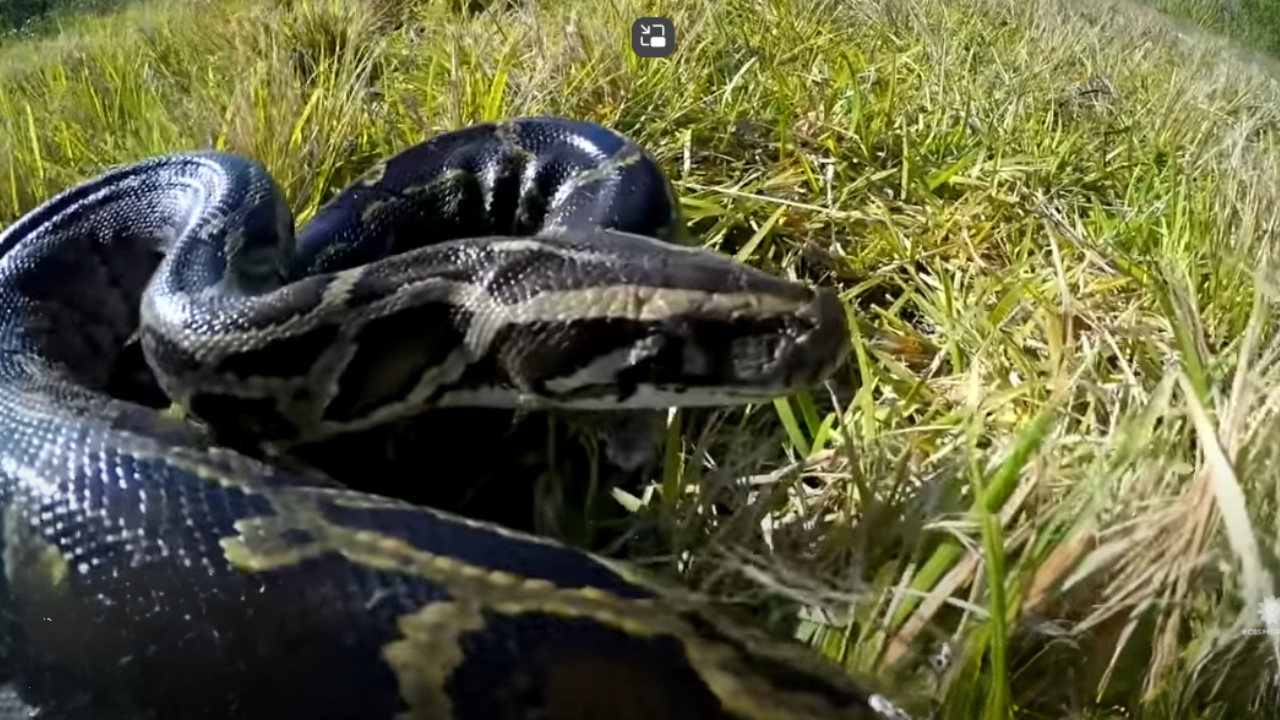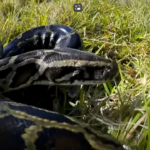This explains why American snake hunters are wading into the Florida Everglades.

This is the season when Florida authorities permit both recreational and expert snake-stalkers to disperse throughout the Everglades in an attempt to capture as many Burmese pythons as possible.
Participants in the yearly Florida Python Challenge, which feeds on the state’s native fauna, must capture and kill nonvenomous constrictors between now and 5 p.m. on Sunday. The challenge started last Friday.
A statement from Ron Bergeron, a member of the South Florida Water Management District governing board, stated that “removing invasive pythons from across the Greater Everglades Ecosystem is critical.
In Florida, Burmese pythons were a common pet in the late 1970s and early 1980s, but as early as 1979, some owners started releasing their snakes into the wild, according to the state.
The tan and brown snakes spread throughout South Florida, especially in the counties of Miami-Dade, Collier, and Monroe, where they started to affect the natural ecosystem.
There are not many natural predators for Burmese pythons, which can reach average sizes of 6 to 9 feet and occasionally much longer. However, they have been observed hunting both large and small prey, including as deer and alligators, as well as rare and threatened species like woodrats and spoonbills. They might also include parasites that are lethal to Florida-native snakes.
Additionally, the state stated that female Burmese pythons have a “high reproductive potential,” with the ability to lay 50–100 eggs a year.
For the purpose of eliminating the greatest number of pythons over the course of the 10-day competition, over 600 participants in the Florida Python Challenge will be eligible to earn a $10,000 grand prize. For the longest python extracted and the most snakes removed among the three categories of novice, professional, and military, there will be additional cash rewards.
According to state officials, 917 Burmese pythons have been eliminated so far through the yearly competition, which has been going on for at least ten years. Of them, 209 snakes were eliminated last year.
The Python Challenge in Florida has begun. What occurs if a hunter is bitten by the invasive snake?
Hunters who encounter the invasive snake have a good possibility of getting bitten if they aren’t careful, especially with another Florida Python Challenge currently underway.
The Florida Python Challenge for this year got underway on August 9 at 12:01 a.m. It closes at 5 p.m. on August 18.
Python huntress Amy Siewe came across a few snakes earlier this year who were not interested in being captured. Put differently, they made an effort.
More: People are curious about how far north snakes may travel when the Florida Python Challenge gets underway.
This indicates that the python’s defensive biting mechanism will be employed in the world of a python hunter. Siewe wrote a post on her Facebook page discussing the encounter. Watch the video up top for more information.
Fortunately, pythons found in Florida, including the Everglades, are not poisonous. However, a bite is still a bite, and it can cause pain and even blood. As the “Python Huntress,” Siewe has made a living by guiding her guests on guided python hunts and killing them gently. For many years, pythons have caused disruptions in South Florida and are a significant environmental protection concern.
A few days following this specific hunt, Siewe discussed python bites in an interview with the Naples Daily News.
The most frustrating thing is that. You grow accustomed to it. That’s just the way things are. You wish to avoid being bitten.”
The Florida Python Challenge: What is it?
The FWC organized the 10-day Florida Python Challenge to incentivize volunteers to eradicate pythons from seven South Florida areas under commission management.
A huge, nonvenomous constrictor snake that is an invasive species in Florida is the Burmese python. Due to their introduction to Florida through the pet trade, Burmese pythons are already well-established in the Everglades, posing a threat to the surrounding ecosystem.
According to FWC authorities, the goal of the challenge is to raise awareness of the threats that predators pose in addition to getting rid of them. By eliminating the invasive Burmese pythons, the competition also aims to save the Everglades’ natural ecosystem and all of its indigenous wildlife.









